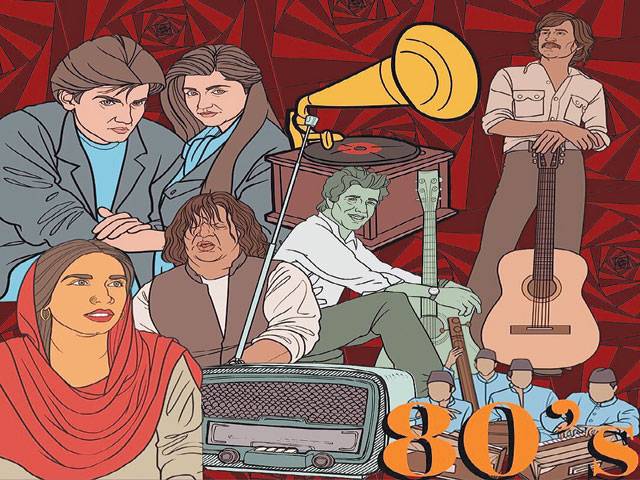Nadeem Farooq Paracha`s latest book “For Faith, State and the Soul” revisits seven and half decades of Pakistan`s cultural traditions, initiatives, and victories. Paracha, commonly known as NFP, is a widely read author, journalist, cultural critic, satirist, and historian.
He has divided this book into pre-partition and post-partition and comments on the events leading up to 2020. He talks about the evolution of popular culture in Pakistan keeping in mind the social, political, economic, and cultural evolution experienced by the country to find its identity and place on the global stage.
Unlike his previous books like “The Pakistan Anti-Hero: History of Pakistani Nationalism through the Lives of Iconoclasts” and “End of past: An immediate eyewitness history of a troubled nation”, this book takes a relatively less dense tune while covering various aspects of the cultural evolution of the country including the film, tv, music, and sports. The book highlights key events and key players of this process and the long-lasting impact of their actions.
Printed by Markings Publishing in their typical creative style, the content is supported wonderfully by brilliant illustrations. These illustrations depict politicians, musicians, sports personalities, and actors and go hand in hand in creating an aesthetically pleasing presentation of the book with the creative use of different font styles and sizes.
It’s an ideal match where well-researched and written text meets the apt aesthetic presentation giving this book its unique selling point. Unlike the usual case, the text and illustrations are not there to save each other rather they complement each other and make the overall reading experience a pleasant and refreshing one.
The book opens up with a timeline of all major events in the country since 1947 covering all political, social, economic, sports, and cultural highlights. NFP expands and comments on many of these events later in the following six chapters. NFP doesn’t go all out with his typical satire style (often experienced in his weekly columns) in this book which is understandable because this effort is more focused on informing and at times introducing the reader to the complicated history. This is important because so far there have been very few efforts to document the cultural history of the country. For instance, it was only recently that a book finally archived the evolution of the fashion industry in Pakistan. Another prominent radio drama writer is working on the rich history of Radio in Pakistan. Efforts like these would help the current generation to understand the reasons and factors which have led us to the present day.
The book also highlights some of the events and reasons that have led the country to the present situation. For instance, we dig deep into how Bhutto came to power on an ideology that appealed to the youth and intellectuals of that era, only to give most of them to prolong his political reign. His downfall led to the rise of the anti-Bhutto ideology led by General Zia who then smartly used print and electronic media to his benefit. The corruption and political infighting led to another coup and the book eventually ends on the hybrid model during Imran Khan`s regime where interestingly you can see that NFP is subtly pinpointing that this system won’t last long (and it did wrap up in less than a year in 2021). On the cultural side, we see the decline of the film industry (from producing a hundred films a year) to the point where Punjabi films took over until 2007 when Shoaib Mansoor revived the film industry. No conversation about the history and evolution of Pakistani music would be complete without the mention of Music`89 and Coke Studio. NFP goes into detail about the role of sports in the country and how Pakistan`s first Hockey World Cup win in 1971 was celebrated with extra vigour to distract the masses from the worsening situation in East Pakistan. We see how the unfortunate decline of hockey came at a time when corporates started putting money into sports that benefited cricket.
Nadeem Farooq Paracha`s rich experience as a student activist, journalist, and cultural critic comes in handy as he explores different aspects of cultural history.
The writer is a digital communication professional currently working in the public health sector. He is the mastermind behind the platform, Sukhan and Mani’s Cricket Myths, and is passionate about telling stories that are changing narratives. In another life, he wrote comic books and animated videos.
Friday, April 19, 2024
Revisiting Pakistan - For Faith, State and the Soul

Hammad Anwar Chaudhry
Minister reviews naan, roti prices
April 19, 2024
ETPB land worth Rs 40b retrieved so far
April 19, 2024
Lahore revamping plan to complete by June 30
April 19, 2024
CCPO reviews security for by-elections, NZ cricket matches
April 19, 2024
A Tense Neighbourhood
April 19, 2024
Dubai Underwater
April 19, 2024
X Debate Continues
April 19, 2024
Hepatitis Challenge
April 18, 2024
IMF Predictions
April 18, 2024
Kite tragedy
April 19, 2024
Discipline dilemma
April 19, 2024
Urgent plea
April 19, 2024
Justice denied
April 18, 2024
AI dilemmas unveiled
April 18, 2024
ePaper - Nawaiwaqt
Advertisement
Nawaiwaqt Group | Copyright © 2024





